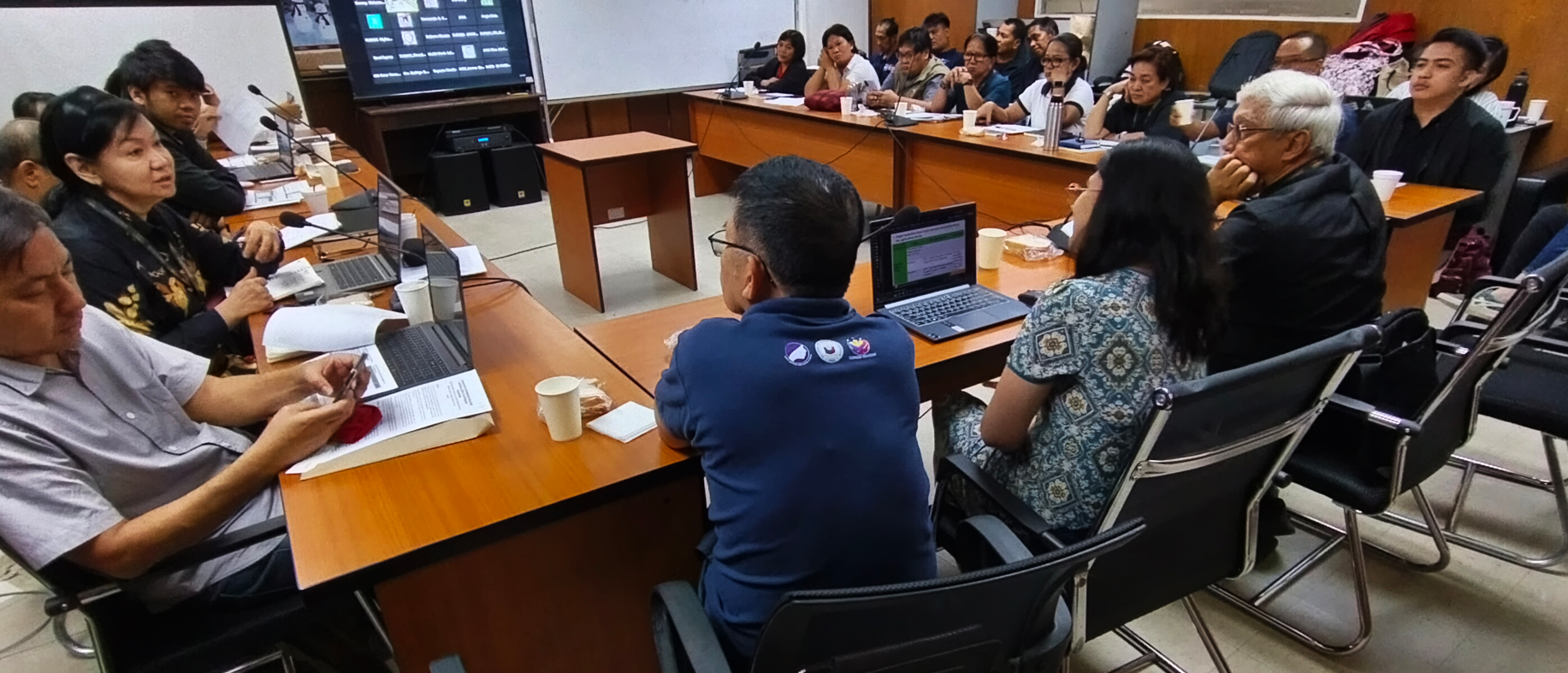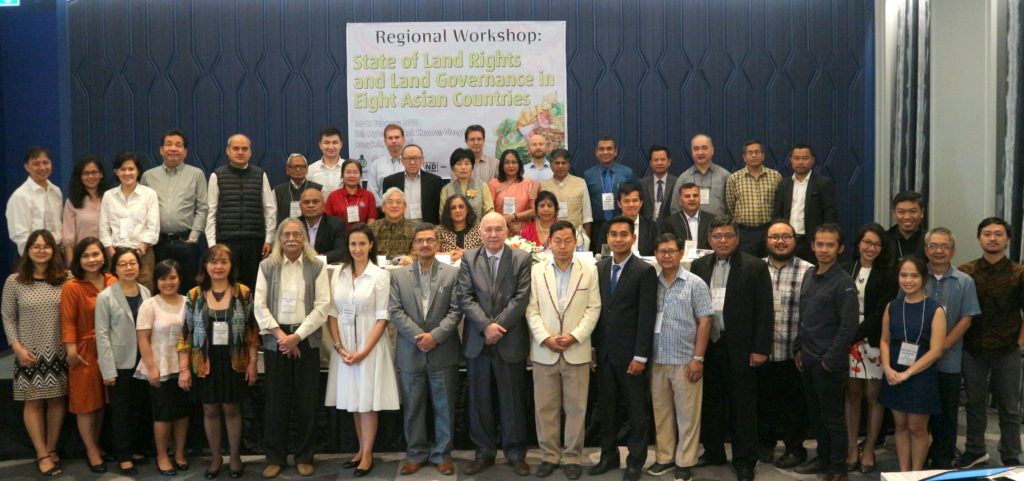


BANGKOK, Thailand – Recognizing the importance of the availability of relevant and timely land data in protecting and defending the land rights of rights defenders and community activists, civil society organizations (CSOs) working with rural communities, national statistical offices (NSOs), government land agencies, and development and intergovernmental bodies gathered in a “Regional Workshop on Land Rights and Land Governance” on 14-15 February 2019 to identify key action areas on strengthening land rights and enhancing land governance in the region in Asia.
The event also marks the 40th year of the World Conference for Agrarian Reform and Rural Development (WCARRD). Organized by FAO in 12-20 July 1979, participants of WCARRD adopted The Peasants’ Charter, focused on the following elements which are still relevant today: a) growth, buttressed by equity concerns; b) self-reliance and a multi-stakeholder approach to rural development; c) participation of beneficiaries in planning, implementing and devaluating rural development policies and programs; and, d) integrated approach to rural development.
With the passage of the UN Declaration on the Rights of Peasants and Other People Working in Rural Areas last 17 December 2018, it is imperative that efforts, such as this, gear towards calling for its adoption and implementation that obligate States to pursue agrarian reform and guarantees land for the rural poor.
The two-day workshop is part of the ongoing initiative on “Sustainable, Reliable and Transparent Data and Information towards Responsible Land Governance: Putting Commitment 8 into Action” convened by the Asian NGO Coalition for Agrarian Reform and Rural Development (ANGOC), supported by the International Land Coalition (ILC) with the financial assistance from the European Union. This initiative brings in the goal of the Land Watch Asia (LWA) Campaign in influencing the land policy formulation and implementation through evidence-based advocacy.

Assistant Director-General and Food and Agriculture Organization Regional Representative for Asia and the Pacific (FAORAP) Ms. Kundhavi Kadiresan, in her message (delivered by Senior Statistician Ms. Sangita Dubey), highlighted the role of securing land tenure rights in meeting the Sustainable Development Goals (SDGs); and equally, the importance of monitoring and evaluation frameworks of SDGs in ensuring reliable statistics as a vital tool in land rights claiming.
Among the main discussions of the workshop includes the regional study on NSO-CSO engagement in the context of SDG 1.4.2[an SDG indicator on land tenure]. It examined the NSO institutions and systems for gathering data and reporting on SDG Indicator 1.4.2 under SDG Goal 1, Target 1.4; and documented the status of land data availability and quality with NSO on SDG Indicator 1.4.2. SDG Target 1.4 states that “By 2030, ensure that all men and women, in particular the poor and vulnerable, have equal rights to economic resources, as well as access to basic services, ownership and control over land and other forms of property, inheritance, natural resources, …” SDG Indicator 1.4.2, on the other hand, refers to the “Proportion of total adult population with secure rights to land, with legally recognized documentation and who perceive their rights to land as secure, by sex and by type of tenure.”

Presented by former ANGOC Chairperson Antonio Quizon, the study concluded that the SDG 1 and 1.4 offer an opportunity to pursue security of land rights. SDG 1.4.2 is also crucial in defining ‘secure land rights.’ However, there are no clear and actual roles for CSO engagement in defining the SDG 1.4.2 yet.

Further, CSO partners from Bangladesh, Cambodia, India, Indonesia, Kyrgyzstan, Nepal, Pakistan, and Philippines presented the results of their land monitoring country studies which described the issues on land rights and land access affecting the rural poor, and the opportunities for advancing land rights. Challenges in upholding land rights across countries all lead to the following primary recommendations: (i) formulation of comprehensive National Land Use Policies; (ii) promotion of locally-managed ecosystems; (iii) full ratification of Convention on the Elimination of all Forms of Discrimination Against Women (CEDAW) by governments; (iv) implementation of agrarian reforms; (v) protection of the rights of tenants and those without documented tenure or contracts; (vi) legal recondition for the land and territorial rights of indigenous peoples; (vii) ensuring the integrity of safeguard mechanisms that regulate land investments; (viii) strengthening local mediation mechanisms; (ix) strict implementation of social and environmental impact assessments, and adherence to free, prior, and informed consent (FPIC); and (x) addressing the shrinking political and democratic space of CSOs in their countries.

The workshop concluded with the adoption of the Bangkok Declaration on “WCARRD 40: Recognize, Defend, and Protect Access to Land, Resources and Tenure Security of the Rural Poor” signed by 37 individuals and representatives from NSOs, government land agencies, CSOs, and international organizations. They committed to uphold and pursue recommendations in promoting “access and tenure security to land, forests, waters, and pastures of smallholder farmers, fishers, indigenous peoples, rural women, pastoralists, youth differently-abled persons, and other marginalized sectors;” and “synergize efforts towards a more people-centered governance of our land and resources through multi-stakeholder partnership to realize the spirit of the Sustainable Development Goals that no one should be left behind.” Read the full Declaration here.
This event was organized by the Asian NGO Coalition (ANGOC), Land Watch Asia (LWA) and International Land Coalition (ILC) Asia, in partnership with the Centre for Integrated Rural Development for Asia and the Pacific (CIRDAP).
